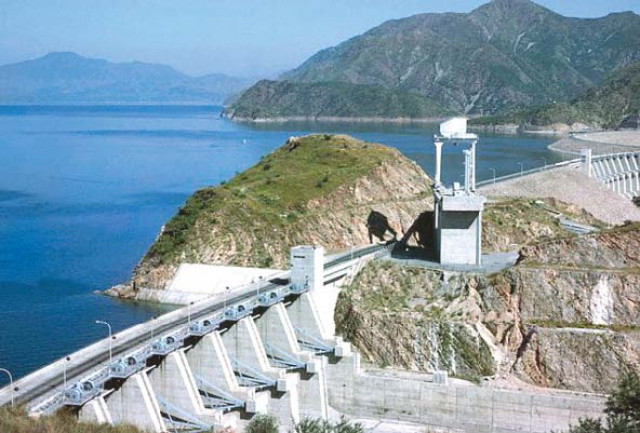‘Kalabagh Dam could have prevented the flood’
Experts disagree over pros and cons over building more dams.

The moot was organised by the Pakistan Institute of Legislative Development and Transparency (Pildat) at a hotel in Karachi, where the panelists stressed the necessity of constructing more dams for the “economic and agricultural survival” of Pakistan.
The controversial Kalabagh Dam was also discussed and according to the chairman of the Indus River System Authority (IRSA), Rao Irshad Ali Khan, it was imperative to build it, along with the Akhori and Bhasha dams so that we could overcome the “severe water shortage”.
However, the other side, including MPAs of the Pakistan People’s Party (PPP) Kulsoom Chandio, Farheen Mughul and Salim Khurshid Khokhar and the Muttahida Qaumi Movement (MQM) MPA Syed Khalid Ahmed, opposed the construction of the Kalabagh Dam. They said the assemblies of the three small provinces have already rejected this project.
A water expert from Sindh, Idrees Ahmed Rajput, also opposed the Kalabagh project. He said the government should instead build smaller dams for water storage.
“We don’t have enough water to store it in a big dam like the proposed one at Kalabagh,” he maintained, adding that Sindh and Khyber-Pakhtunkhwa would bear the side-effects of this dam.
However, Khan disputed both claims. It is not true that Pakistan does not have water to store, he said, calling this a “misconception that was perpetuated by vested interests”. He believed that if we had constructed the Kalabagh Dam, we would not have sustained the colossal damages that we did in the floods last year.
The entire world is focusing on how to store water but the four provinces of Pakistan have yet to reach consensus on building dams. It will mean more water for everyone, he added. Referring to the Mangla and Tarbela dams, he said that all the provinces are benefiting from these two big water reservoirs.
Currently, Pakistan has an eight per cent capacity of water storage while India has 33 per cent capacity. Kalabagh, Akhori and Bhasha dams would increase our capacity to 23 per cent, which would still be low compared to India. “We will not only store a huge quantity of water but also generate around 65,000MW electricity, which would help to fight off the persistent load shedding.”
Irsa member from Balochistan M Amin said that water was an old issue for Pakistan but these days, it is the ‘hottest’ topic for the entire world.
He said that the agricultural and economic future of Pakistan would be in jeopardy unless we build more dams.
According to him, the Chashma-Jhelum Link Canal was the only link canal in the country. He rejected the notion that this canal was built as a flood canal. “It is a link canal providing water to many important areas in Punjab.”
Former Sindh governor Lt General (Retd) Moinuddin Haider also said that water has become a global issue and we are wasting our water by letting it into the sea instead of storing it in big dams. He said the release of water downstream of Kotri was useless while the issue of sea intrusion was being exaggerated. He stressed confidence-building measures between Sindh and Punjab over the Kalabagh Dam issue.
Water for Karachi
Khalid Ahmed raised the question of a water quota for Karachi. He said that in the era of General Ziaul Haq, the water quota for Karachi was fixed at 1,200 cusecs. Decades later, we still have the same quota. The Irsa has yet to raise it despite repeated requests. The population of Karachi has risen drastically and it requires a revision of the quota.
The Irsa chairman replied that the authority was giving water directly to the Sindh government, which then gives water to Karachi. Therefore, MQM should talk to the provincial government if it wants more water.
Published in The Express Tribune, February 16th, 2011.



















COMMENTS
Comments are moderated and generally will be posted if they are on-topic and not abusive.
For more information, please see our Comments FAQ